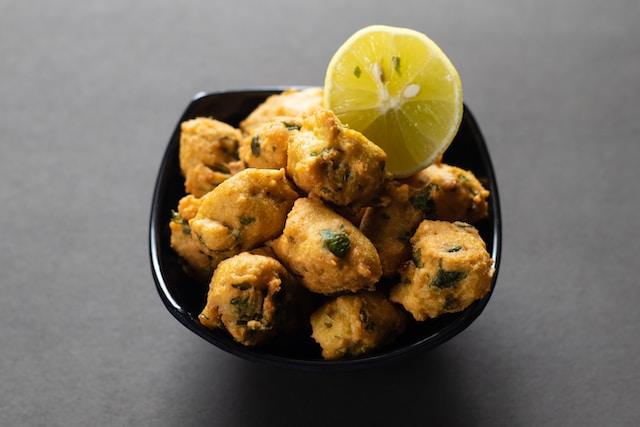Here's a plant you can be sure your ancestors, if they were European or Mediterranean, ate before you(1)!
Fenugreek is a medicinal and aromatic plant native to the Middle East(1). It has been consumed in Egypt, the Maghreb, India, Ethiopia, Greece, Italy, Spain and France since ancient times.
The Egyptians used it for burns(1,2). The Greeks, including Hippocrates, recommended it to soothe difficult digestion(1,2). Scientists call it Trigonella foenum-graecum(1,2). Fenugreek is also known as trigonella, senegrain or Greek hay.
Fenugreek, a plant that feeds people and animals
Foenum-graecum or Greek hay is a leguminous plant. In the Middle Ages, it was used as a fodder plant(1). Its use spread from the shores of the Mediterranean to the whole of Europe under Charlemagne(1). In the 17th century, it was included in the Pharmaceutical Codex as a tonic plant.
Fenugreek to spice up dishes
In North Africa and India, it has always been used as a spice. The seeds are used in bread and other recipes(3).
You can add them to omelettes or pan-fried vegetables(3). Combined with carrots or zucchinis, fenugreek seed is excellent, for example(3).

Fenugreek stimulates hunger...
Your nutritionist, I'm sure, would be delighted if you consumed fenugreek seeds. They're packed with useful nutrients. One of the best known is trigonelline, an alkaloid derived from the metabolism of vitamin B3(4,5). This substance is also present in coffee, giving it its bitter taste(4).
It is also found, in smaller quantities, in hemp seeds, oats and even potatoes(4). Thanks to its trigonelline content, fenugreek is considered an aperitif: it whets the appetite(4).
That's why it's sometimes recommended for anorexia or weight loss of nervous origin(5). In this case, your herbalist will advise you to take a herbal tea of fenugreek seeds one hour before meals(5).
Does fenugreek curb the appetite?
Fenugreek is known for its mucilage, which makes up 40% of its seeds(4,5). These soluble fibers, known as galactomannans, have multiple benefits(4,5) :
- they make stools bulkier and improve digestive comfort;
- they facilitate intestinal transit;
- they protect the stomach;
- These fibers relieve stomach sores and help fight stomach ulcers;
- they regulate the pH of the stomach;
- they also have satiating properties.
After whetting your appetite with its bitterness, fenugreek's fiber quickly makes you feel full.
Fenugreek, a boatload of minerals
Les fenugreek seeds provide you with vitamins A, B1, B9 and C. They are also rich in polyphenols(1,2). They therefore have a notable antioxidant action(1,2). This is useful against cell ageing and for your immunity.
As for minerals, fenugreek is also generous in calcium, phosphorus, magnesium and potassium(4). Good for your bones, nervous system and muscles.
Fenugreek is also iron, and not just ...
It also provides you with iron, sulfur, manganese, as well as a little zinc and copper(4). In this way, these seeds also help boost your immunity.
Fenugreek and weight?
Fenugreek produces an amino acid
At le fenugrec an amino acid you'll love. It's called 4-hydroxyisoleucine(1). The name may sound barbaric, but the action is excellent. This amino acid is hypoglycemic: it regulates your blood sugar levels(1,2). It also acts on insulin secretion.
So.., le fenugrec has a dual action on sugar. It's excellent for better digestion and beneficial for your metabolism. Fenugreek also reduces the risk of diabetes(1,2). This, combined with its mucilage, makes fenugreek a plant recommended for combating weight gain(4,5).
Fenugreek to detoxify
Fenugreek can also detoxify your body. Particularly against bisphenol A, a dangerous endocrine disruptor derived from plastics. Weight has everything to do with toxic substances stored in fats and hormones(7). This second action is not to be taken lightly. Toxic substances that accumulate in fat are deleterious.
If you can reduce the amount through sport and detox, you're giving your body a real break. Some therapists even go so far as to suggest liposuction to dislodge toxins, particularly in the lower back(7)! This is what Pr Jacques Théron does, for example, in his treatment protocol for herniated discs(8).
To prevent your body from becoming a dumping ground, it's a good idea to detoxify regularly. There's nothing like a good fenugreek(5) seed tea!
Le fenugreca vitality boost
Fenugreek provides gentle vitality(5) and is sometimes classified as an adaptogen, i.e. a plant that helps humans(2,9) :
- coping with stress;
- overcoming exceptional effort;
- increase an organism's resistance.
Fenugreek boosts your body's capacity to fight inflammation(5), counterbalancing the effects of an overactive immune system.

It can, therefore, reduce certain types of pain. This is why it is considered useful for joint pain and rheumatism(5). It is also said to be excellent for preventing cardiovascular disease(1,2).
Fenugreek, a plant that loves women
Les fenugreek seedsFinally, through their action on hormones, they can help women at all decisive or pivotal moments in their lives(4,5). At puberty or during the menopause, they can have a soothing effect(4,5).
They are sometimes recommended for nursing mothers for their galactogenic effects, but the baby may not like the taste of milk(4,5)!
For pregnant women, however, they are not recommended due to their toning action, which could be harmful to the developing fetus(5).
In what form can you eat fenugreek seeds?
The easiest way is to use seeds which you can use in a variety of recipes(1,2,3).
Herbal tea is also very easy to make(5).
- Boil your seeds for 3 minutes and leave to infuse for 10 minutes(5).
- You need one tablespoon of fenugreek seeds per cup of water(5).
You can also consume it in powder form, for example in a glass of water, or in capsules(4,5). Fenugreek seed oil is widely used in cosmetics, for facial and skin care.
It can also be found in edible oil form(4). For external use, on abscesses, boils or eczema(5), you can use fenugreek seed paste, obtained by combining the seeds with a little water(5).
References
- https://www.passeportsante.net/fr/Solutions/PlantesSupplements/Fiche.aspx?doc=fenugrec_ps
- https://www.laboratoire-lescuyer.com/nos-actifs/fenugrec#
- https://chefsimon.com/recettes/tag/fenugrec
- https://amoseeds.com/blogs/guide-phytotherapie/fenugrec-bienfaits-proprietes-risques
- Michel Pierre, Les plantes du bien-être, Editions du Chêne, 2014
- https://pubmed.ncbi.nlm.nih.gov/31793690/
- https://www.biophenix.com/dossiers-sante/prise-de-poids-causes-consequences-et-solutions.html
- https://www.senioractu.com/Prevenir-et-soigner-son-mal-de-dos-en-retablissant-l-harmonie-globale-du-corps_a19438.html
- https://koklaya.com/2019/12/03/le-fenugrec-fortifiant-depuis-des-millenaires/